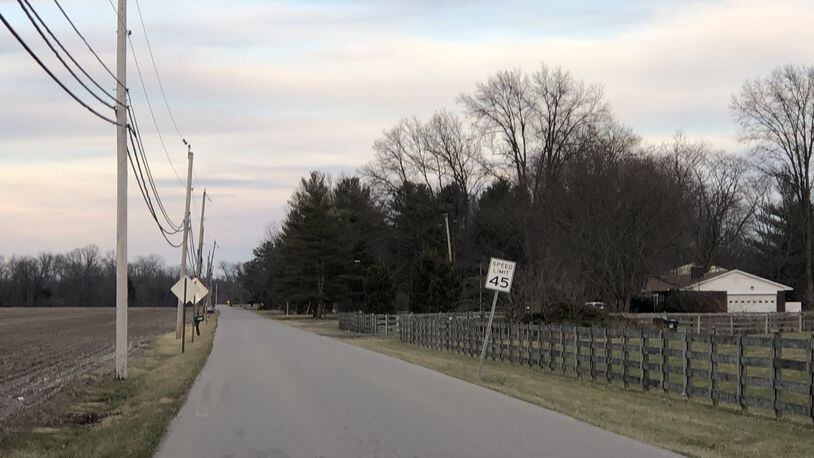“I think we are creating a new standard for rural customers only,” County Commissioner Shannon Jones said before Tuesday’s vote.
Jones’ comment came after Assistant County Prosecutor Bruce McGary described the service as “substandard.” Other officials agreed it was instead a new rural standard.
TRENDING: IHOP returns to Dayton with new Miller Lane location; more on the way
The regulations immediately apply to land in Wayne, Clearcreek, Hamilton and Massie townships, but could be expanded to other areas without service along the “periphery” of the county’s water district.
“We don’t see it going much further,” Chris Brausch, who heads the county’s water and sewer department, said after the meeting.
Clearcreek Twp. Fire Chief Steve Agenbroad said his department would continue to draft water out of ponds or rely on agreements with neighboring departments for tanker trucks to carry water to fire scenes.
Agenbroad said the vast majority of the department’s service area, including Springboro, has hydrants.
“We would certainly prefer a larger type (of water line) with fire hydrants,” Agenbroad said.
However, Agenbroad said the fire department had no authority over the decision on the rural service and appreciated the savings to be enjoyed by property owners petitioning for the service.
Hamilton Twp. Administrator Brent Centers noted the regulations would save local property owners wanting to sell lots or get their own water through Warren County but that don’t “provide a line large enough to supply for fire protection and will not include fire hydrants.”
PHOTOS: A look back at the Blizzard of 1978
Brausch acknowledged the fire departments were not consulted before the change was made.
“It doesn’t change the service the fire departments have right now in those areas,” Brausch said.
Rather than larger ductile iron lines used in most areas, the county would install PVC pipe 3 to 6 inches in diameter if affected residents petitioned for the service.
The regulations don’t prevent residents or property owners from getting the more expensive water service that provides for hydrants and allows for higher-density residential subdivisions or commercial development.
“We’d be happy to do that,” Brausch said.
With Commissioner Dave Young absent, Jones and Commissioner Tom Grossmann voted on Tuesday for Section XV of the county’s water and sewer rules and regulations. That came after another discussion of the issue, first considered in November.
The November discussion centered on offering the rural service on a stretch of Township Line Road, which borders Clearcreek and Wayne townships, rather than turn over the area to the Western Water Co., a rural water authority that typically provides the smaller PVC piped service.
This section also includes a stretch of Pekin Road from Utica Road nearly to US 42, as well as shorter sections on Old 122 and Utica.
MORE: Why a real estate agent says this grand Dayton house sold in a flash
The Hamilton Twp. and Massie Twp. areas were added at Tuesday’s meeting.
In Massie Twp., rural roads on both sides of Caesar Creek Lake, including New Burlington, Corwin, Middletown, O’Neall and Brooks-Carroll, could petition for the service.
In Hamilton Twp., stretches of Fosters-Maineville, Maineville and Butterworth Roads are included.
Brausch said the service was also in answer to calls from residents left without water during last summer’s droughts who could otherwise be served by the competitor, Western Water.
A regional map marks the limits for water providers.
“We’re trying to limit the amount of property we turn over to other providers,” Brausch told Jones and Grossmann.
“The construction standards outlined below are intended to allow for affordable construction in areas of the county with low residential densities,” according to the new code. “These standards apply to improvements that are designed, constructed and financed by Warren County, and shall not apply to proposed residential subdivision developments.”
The code gives the commissioners and the county sanitary engineer “in its sole discretion” the power to set up these areas “limited to the peripheries of the county’s distribution system and locations where redundant looping of waterlines is not critical.”
The area designated “can be expanded or reduced in size, by resolution of the board,” the code continues. “The majority of residents within the proposed improvement area must be supportive.”
The waterline projects can be financed through cash reserves, loan or bonds and are to be repaid through $5,780 payments for each tap-in, meter and inspection.
“It makes these waterline projects more affordable,” Brausch said.
McGary said he added a section to applications for “disclosure and assumption of risk,” so those getting the service don’t become “potential plaintiffs against us in the future.”
McGary also noted the limits of disclosure forms used in home sales that could leave new owners ignorant of the limits of their fire protection.
“I guess there’s nothing we can do about that,” McGary said.
Brausch said the same problem could come up for rural water providers like Western Water.
“They are protected by federal law. We are not,” McGary said.
About the Author
